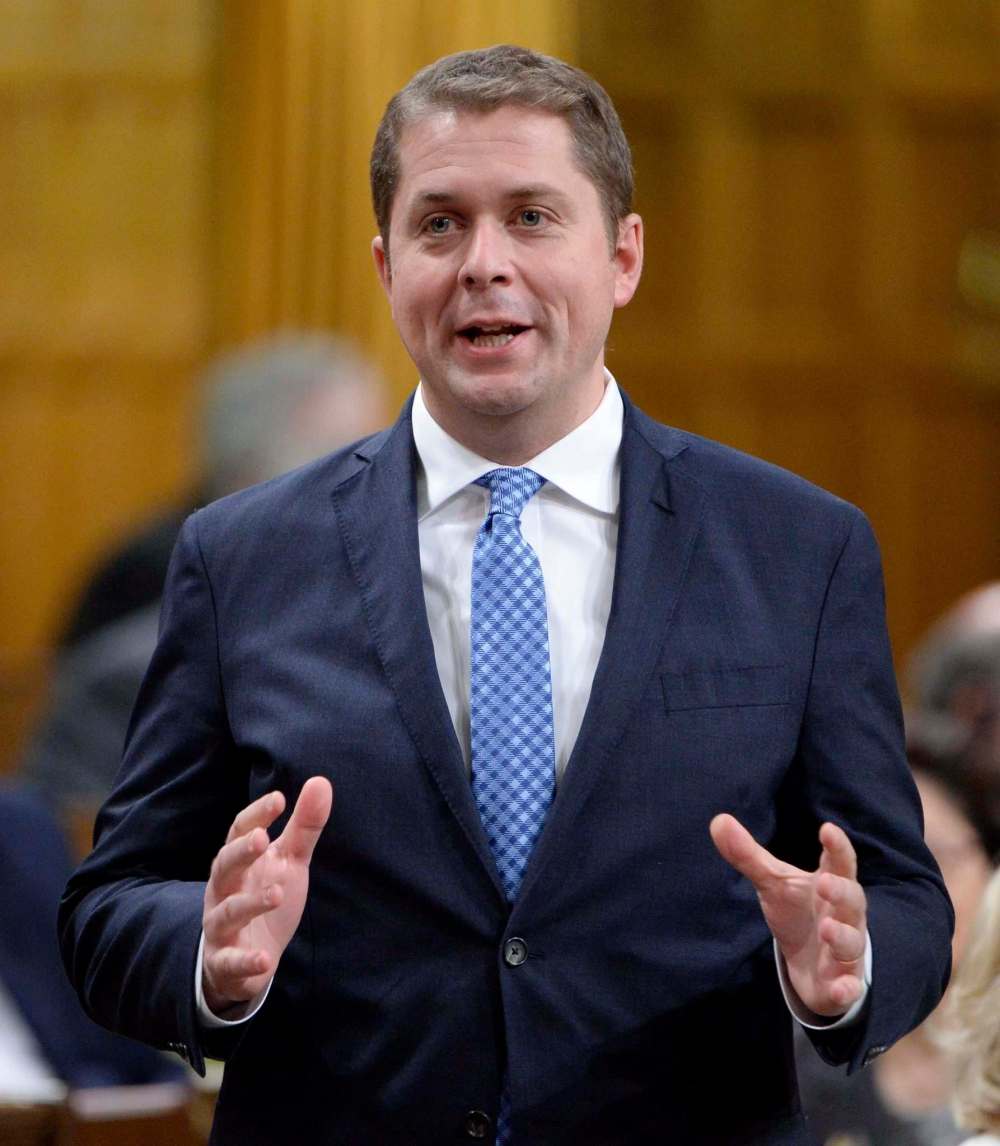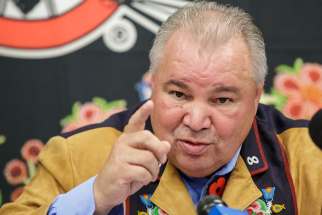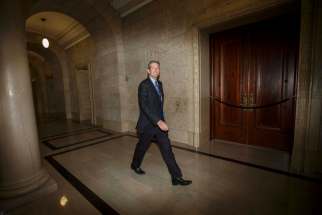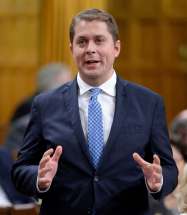Scheer opts for shooting the messenger
Read this article for free:
or
Already have an account? Log in here »
To continue reading, please subscribe:
Monthly Digital Subscription
$0 for the first 4 weeks*
- Enjoy unlimited reading on winnipegfreepress.com
- Read the E-Edition, our digital replica newspaper
- Access News Break, our award-winning app
- Play interactive puzzles
*No charge for 4 weeks then price increases to the regular rate of $19.00 plus GST every four weeks. Offer available to new and qualified returning subscribers only. Cancel any time.
Monthly Digital Subscription
$4.75/week*
- Enjoy unlimited reading on winnipegfreepress.com
- Read the E-Edition, our digital replica newspaper
- Access News Break, our award-winning app
- Play interactive puzzles
*Billed as $19 plus GST every four weeks. Cancel any time.
To continue reading, please subscribe:
Add Free Press access to your Brandon Sun subscription for only an additional
$1 for the first 4 weeks*
*Your next subscription payment will increase by $1.00 and you will be charged $16.99 plus GST for four weeks. After four weeks, your payment will increase to $23.99 plus GST every four weeks.
Read unlimited articles for free today:
or
Already have an account? Log in here »
Hey there, time traveller!
This article was published 31/10/2018 (2598 days ago), so information in it may no longer be current.
Conservative Leader Andrew Scheer is feeling misunderstood. He thinks his policy on the carbon tax has been trashed by the press and the pundits and that’s just plain unfair. He’s going to hit back against his tormentors.
Mr. Scheer told a recent Ottawa party meeting he would stand up to the media. He accused journalists of siding with the Liberals in the carbon tax debate. “We don’t always get the same kind of coverage that (Trudeau) gets in the mainstream media. Have you noticed that?” he said. Trudeau, he added, has “the media on his side, he’s got the pundits, he’s got the academics and think tanks, everyone who wants to lecture you on how to spend your own money and how to live your life.”
Since then, Tory finance critic Pierre Poilievre complained that a Bloomberg reporter in Ottawa had shown bias. Josh Wingrove’s offence, in Mr. Poilievre’s eyes, was that he had reported a statement from the Business Council of Canada supporting the government’s plan.

If this is Mr. Scheer’s idea of standing up to the media, he won’t go far. Reporters are going to keep doing their job, reporting on the national debate on a carbon tax, even if Mr. Scheer sends his finance critic out to accuse them of bias.
The main reason the Tories’ carbon reduction plan doesn’t get the same coverage as the government’s plan is that the government has a plan and the Tories have none. Mr. Scheer should not be surprised that the media, the pundits, the academics and the think tanks support the government’s plan: they have looked at the facts and the facts, broadly speaking, support the plan.
The government cannot efficiently figure out how each Canadian consumer of fossil fuels should adjust their lives and their businesses to burn less fuel. If you raise the price of carbon, Canadians will figure that out for themselves, as they always do when market forces or world conditions drive up a price. The government’s plan is to tax carbon at $10 per tonne to start with (equivalent to 2.3 cents per litre of gasoline) and raise that by $10 each year to reach $50 per tonne in 2022. Large emitters exposed to foreign competition where the Canadian tax does not apply will get a break so that they are not immediately put out of business.
Canada has to do something to reduce its emissions of carbon dioxide and other greenhouse gases because the carbon dioxide concentration in the atmosphere has increased steadily through the industrial era, resulting in warming of the climate, melting of the polar ice caps and rising sea levels. All countries have to cut their emissions and Canada, being part of the problem, has to do its part. Greater results will be achieved when greater polluters such as the United States join the effort. No country can single-handedly solve the planetary problem, but each has a role to play.
Mr. Scheer and several Conservative premiers, recently including Manitoba’s Brian Pallister, object to the federal plan. But Mr. Scheer has yet to show how Canada will reduce its emissions without a carbon tax.
Until he comes up with the long-awaited better idea, Mr. Scheer is in effect telling Canadians to carry on polluting and pass a degraded planet to the next generation. This position will not win wide support. Mr. Scheer will have a lot of messengers to shoot.








.jpg?h=215)


